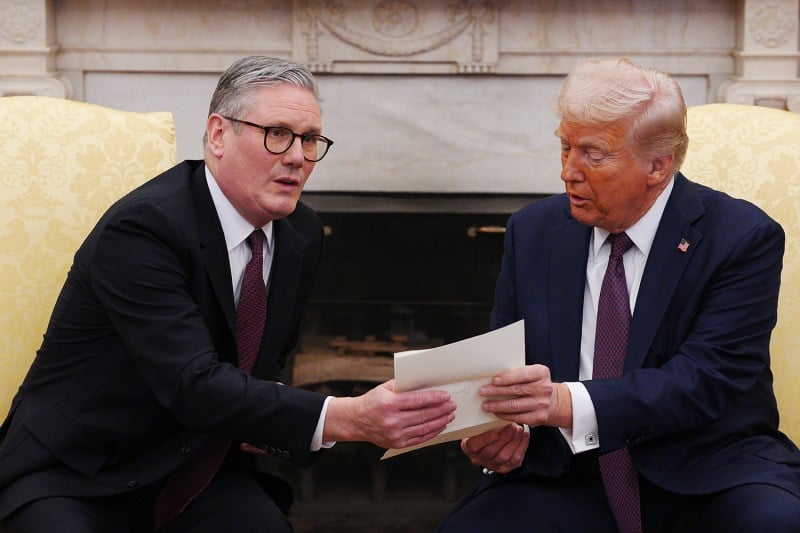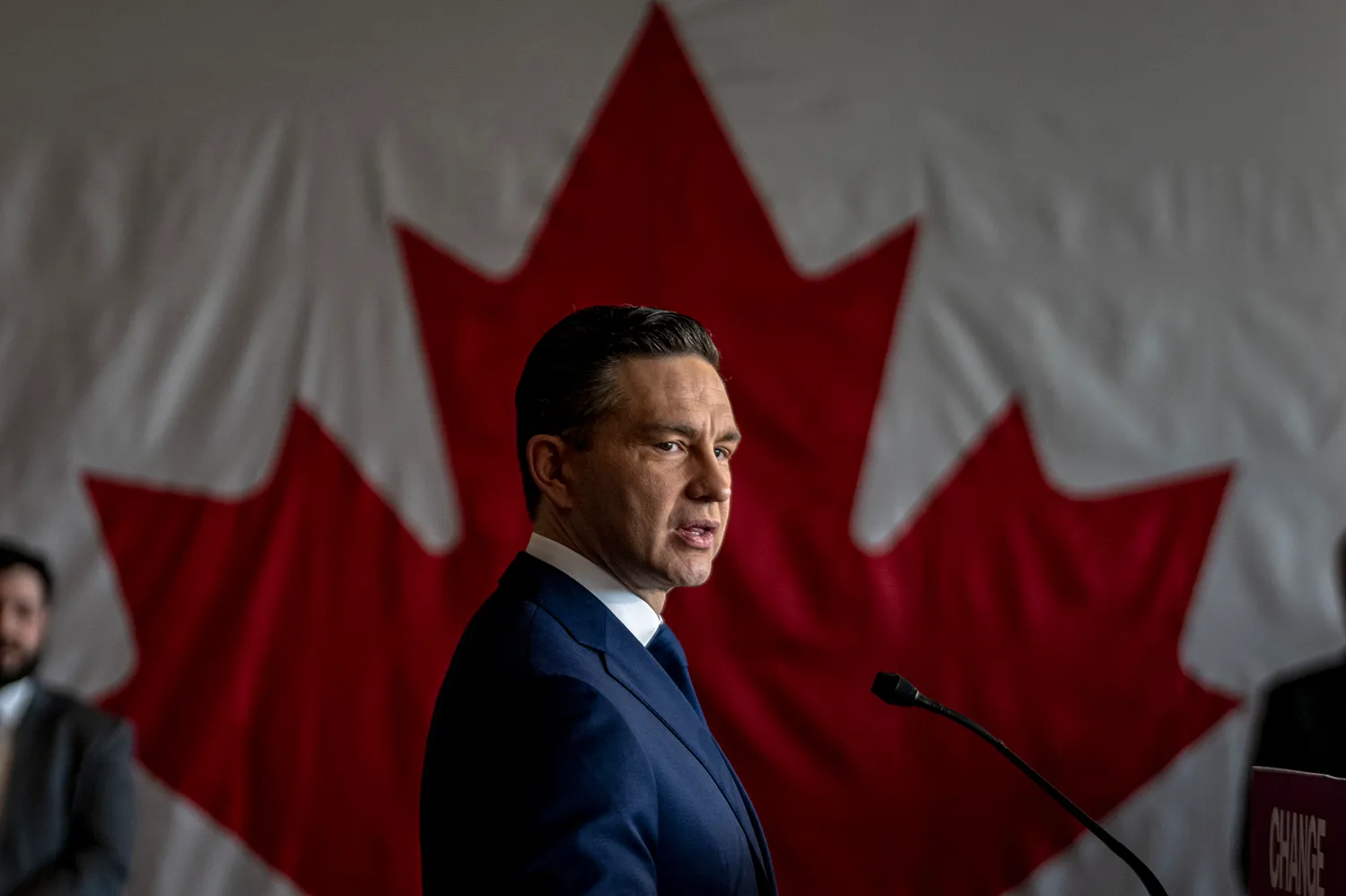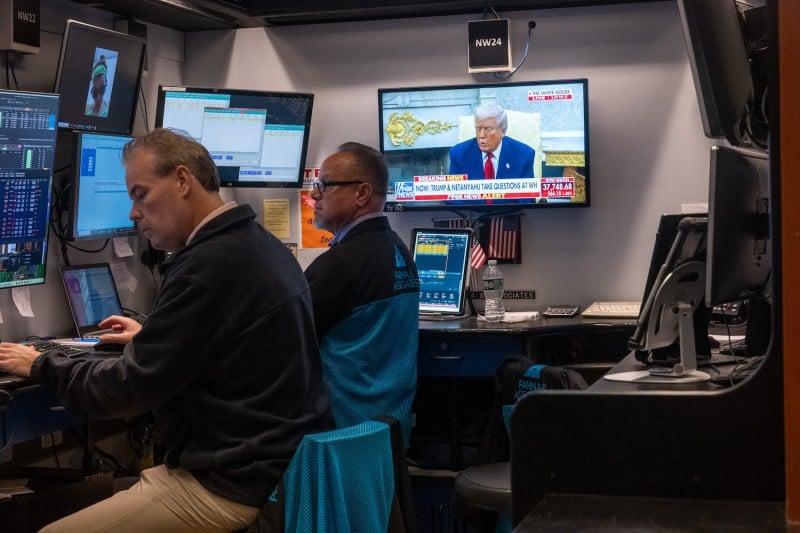Allies Assess What Intelligence They Can Still Share With Trump

Allies Assess What Intelligence They Can Still Share With Trump
Washington’s loose lips and closer ties to Moscow could unravel Western cooperation.
British Prime Minister Keir Starmer hands an invitation from King Charles III to U.S. President Donald Trump at the White House in Washington on Feb. 27. Carl Court/Getty Images
In handing U.S. President Donald Trump a personal invitation from King Charles III to enjoy all the pomp and circumstance that his country has to offer, British Prime Minister Keir Starmer is plainly trying to salvage what many British politicians have fondly imagined is a special relationship with the United States. It’s a clever move, but it also smacks of a desperate rearguard action.
As social media mogul Elon Musk takes an axe to the federal government structures that keep the United States functioning, the international relationships that keep Americans secure and prosperous are also suffering rapid unscheduled disassembly. Picking meaningless fights with North American neighbors, seeking to “partner” with Russia, and cutting European allies loose are just the most immediate signs that the fabric of Washington’s foreign relations is unraveling, U.S.-British ties included.
In handing U.S. President Donald Trump a personal invitation from King Charles III to enjoy all the pomp and circumstance that his country has to offer, British Prime Minister Keir Starmer is plainly trying to salvage what many British politicians have fondly imagined is a special relationship with the United States. It’s a clever move, but it also smacks of a desperate rearguard action.
As social media mogul Elon Musk takes an axe to the federal government structures that keep the United States functioning, the international relationships that keep Americans secure and prosperous are also suffering rapid unscheduled disassembly. Picking meaningless fights with North American neighbors, seeking to “partner” with Russia, and cutting European allies loose are just the most immediate signs that the fabric of Washington’s foreign relations is unraveling, U.S.-British ties included.
Beneath the surface, other signs of dissolution may be less visible, but they are just as invidious for U.S. power and security. The latest indication of what may be happening out of the public eye came with this week’s report—which was swiftly denied—that senior White House advisor Peter Navarro is pushing for Canada to be kicked out of the Five Eyes intelligence-sharing partnership.
Intelligence-sharing arrangements like Five Eyes are part of the web of cooperation among Washington and its friends that has long underpinned U.S. and Western security. The Five Eyes arrangement with fellow English-speaking countries Australia, Britain, Canada, and New Zealand is only the best-known of these; the United States also has bilateral and multilateral arrangements that are far less prominent. Along with NATO and other security alliances, these partnerships have formed the foundation of cooperative security management to preserve the international order and protect the U.S. homeland. But just as with NATO, their value may be called into question by the early actions of the Trump administration.
Starting well before Trump’s inauguration on Jan. 20, Washington’s intelligence-sharing partners probably began to assess the need to become more reserved about what they can risk sharing with U.S. partners—and what to hold back. Partners will have observed with horror when, during his first term, Trump challenged his own intelligence services, posted a classified photo of an Iranian missile launch site, and eagerly shared secret intelligence with Russian officials. Fears of sharing sensitive information with Washington will have deepened radically following U.S.-Russia talks in Riyadh, when it became clear that the United States now places a higher value on partnering with the Kremlin than the concerns of its European allies.
The Five Eyes relationship has its roots in the UKUSA Agreement, an intelligence-sharing treaty between the United Kingdom and the United States that was signed soon after World War II; the U.K. later sponsored the entry of Australia, Canada, and New Zealand into the agreement. Things have moved on a little since then, not least the relative weight of the two original partners in what was once a far more equal relationship. But there’s still an understanding that, as a general principle, the members of intelligence-sharing groups fill each other’s gaps—whether because of physical access, established relationships, a different assessment of risk, or any other factors. For example, British and Canadian intelligence officers can reach into places their American counterparts cannot, and Australia is geographically convenient for supplementing U.S. signals intelligence capabilities in the Indo-Pacific.
This reflects how different countries play to different strengths in intelligence collection. The traditional stereotype is that the United States throws money at a problem, whereas its partners on more constrained budgets have to think harder about how to get what they need. The Five Eyes relationship is primarily concerned with signals intelligence, but other relationships may reflect other types of specialization.
Some degree of diversification is essential because of the way different sources of intelligence work together to build a picture. That became publicly clear in late 2021 and early 2022 during Russia’s military buildup for its full-scale invasion of Ukraine, when apparent preparations for a large-scale attack—but with numbers and resources too small for any rational invasion plan—made no sense without secret intelligence confirming that Russia was indeed determined to do something nonsensical.
Intelligence-sharing doesn’t mean blanket access to secrets granted to a partner nation. Instead, individual elements of the intelligence picture will be assessed for whether they can be released—and to whom. Inevitably that carries a degree of risk, as any group will only be as secure as its least trustworthy member. During the Cold War, the joke went that marking a report “NATO SECRET” meant including a copy to Moscow.
Within the U.S. intelligence community, international liaison relationships are coordinated with the CIA, although that’s been the subject of bitter turf wars in the past. During his tenure as head of the Defense Intelligence Agency, former National Security Advisor Mike Flynn fought to take over the relationship with Russia’s military intelligence agency, GRU.
The CIA produces results from liaison relationships with partners around the world. These relationships, in turn, are founded on trust and credibility—the exact two things that Trump and Musk threaten. An administration led by a president with a history of storing boxes of secret documents in the bathroom at Mar-a-Lago and posting classified intelligence on social media will inevitably be treated with caution by partners. The appointment of Tulsi Gabbard, who is viewed with deep distrust by U.S. national security professionals, not least for her close past alignment with the Kremlin’s views, as overseer of the intelligence community will only heighten partners’ reserve.
Not sharing signals intelligence in order to protect it from Trump and Musk will be hard to do, given the close integration between systems and organizations among the Five Eyes group. But in other areas, partners will inevitably be less willing to entrust their secrets to the United States. The “independence” from the United States that Germany’s probable next chancellor, Friedrich Merz, aspires to would entail decoupling from the intelligence relationship with Washington, too.
Spying is an inherently risky and sometimes life-and-death business, and agents recruited by an intelligence service are always hostage to that service’s internal security. During the Cold War, Soviet moles in the West—such as the Cambridge Five in the U.K. and Aldrich Ames in the United States—showed the devastating impact of treachery counted in lives of betrayed agents. When a U.S. administration appoints intelligence and counterintelligence chiefs who have previously been overtly hostile to the agencies they will now lead, however, it presents an entirely new and more systemic threat.
The evident risk will make it substantially more difficult for the United States to recruit, access, and protect the human sources it needs for a complete intelligence picture. Every CIA agent around the world must presently be terrified, since they now face not only the risk of Trump fecklessly disclosing the intelligence they provide, but also the possibility of being outed, deliberately or not, by Musk’s minions running rampant through classified records.
In addition, a key selling point for cooperating with U.S. intelligence services has now been fatally undercut. The United States, for all its flaws, has traditionally always stood as a force for good against autocracies, dictatorships, aggressors, and corrupt governments. Now that the Trump-Musk presidency is rapidly transforming the United States into a dysfunctional oligarchy that partners with pariah states like Russia, the moral rationale for helping the United States will have largely evaporated.
The result may be that Washington’s partners in relationships like Five Eyes become more, not less, important—at least when it comes to human intelligence. At the same time, however, those partners will be far more reluctant to share with the United States because they will need to protect their sources and themselves.
For all the public theatrics, such as Navarro’s statement on Canada’s Five Eyes status, we may not see any overt repudiation of existing intelligence-sharing arrangements, at least not publicly. But just as the United States does not have to leave NATO in order to render it useless, a notional sharing arrangement can stay in place even as both sides know that they are no longer honoring it.
Like a couple still appearing together in public while awaiting the formality of a divorce, CIA officers abroad will still have friendly meetings with their liaison partners, but they will know that the basis of the relationship in trust has gone. In some cases, the United States will have other sources to tell it what its partners are withholding. In others, Washington will now never know what it doesn’t know. The United States and its citizens are less safe as a result.
This post is part of FP’s ongoing coverage of the Trump administration. Follow along here.
Keir Giles is a senior consulting fellow in the Russia and Eurasia Program at Chatham House and the author, most recently, of Who Will Defend Europe? An Awakened Russia and a Sleeping Continent.
John Sipher is a non-resident senior fellow at the Atlantic Council, a co-founder of Spycraft Entertainment, a former member of the CIA’s Clandestine Service, and a host and producer of the Mission Implausible podcast. Bluesky: @johnsipher.bsky.social
More from Foreign Policy
-

People stand in front of NATO headquarters in Brussels. It’s Time for Europe to Do the Unthinkable
Brussels has slavishly followed Washington for too long—and forgotten how to advance its own geopolitical interests.
-

Samuel Huntington holds his hand to his chin while sitting in an office. Samuel Huntington Is Getting His Revenge
The idea of a global “clash of civilizations” wasn’t wrong—it was just premature.
-

German Chancellor Olaf Scholz visits weapons maker Rheinmetall in Unterluess, Germany on Feb. 12, 2024. How Europe Can Defend Itself
Here are 10 steps European leaders can take now to bolster the continent’s defenses without U.S. help.
-

J.D. Vance gestures with both hands open as he speaks into a microphone during the Munich Security Conference. Vance wears a black suit with a blue tie. The New Meaning of ‘Munich’
After J.D. Vance’s bizarre speech, a word synonymous with appeasement may now signal the voluntary surrender of global hegemony.











Join the Conversation
Commenting on this and other recent articles is just one benefit of a Foreign Policy subscription.
Already a subscriber?
.
Subscribe
Subscribe
View Comments
Join the Conversation
Join the conversation on this and other recent Foreign Policy articles when you subscribe now.
Subscribe
Subscribe
Not your account?
View Comments
Join the Conversation
Please follow our comment guidelines, stay on topic, and be civil, courteous, and respectful of others’ beliefs.
Change your username |
Log out
Change your username:
CANCEL
Confirm your username to get started.
The default username below has been generated using the first name and last initial on your FP subscriber account. Usernames may be updated at any time and must not contain inappropriate or offensive language.